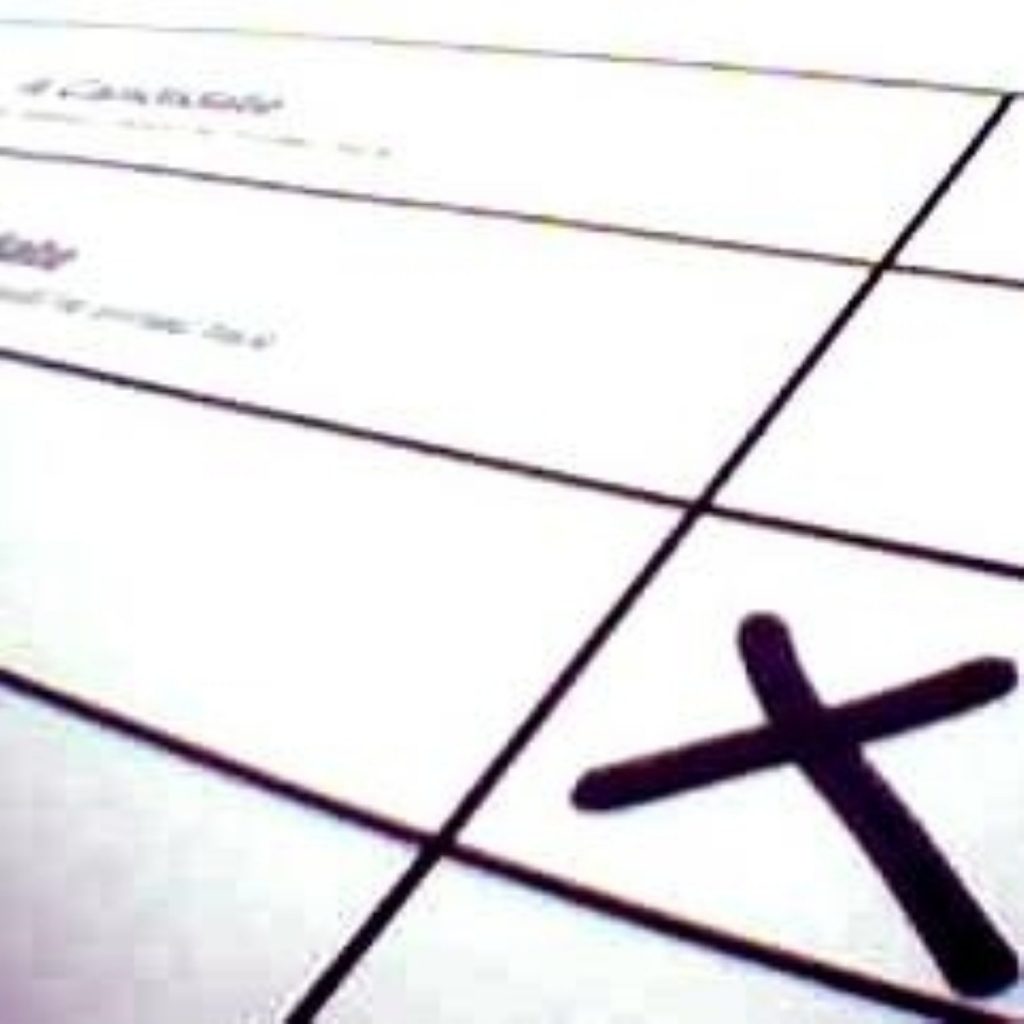Peers defy Commons over voter registration
Peers voted for the second time to introduce a new requirement for voters to sign for their ballot papers last night, setting up another clash with the House of Commons.
The House of Lords voted 156 to 147 in favour of an amendment that would require all voters to register on the electoral roll individually with a signature and their date of birth, which would then be checked when they arrived at the polling station.
MPs have already rejected the change once, arguing that pilot schemes must first be carried out using signatures to ensure the system works properly, and when the electoral administration bill returns to the lower House they are expected to reject it a second time.
Speaking for the government during the debate last night, Baroness Ashton reminded peers of the need to test the effect of the new proposals, and repeated concerns that the new system might significantly cut the number of people registered to vote.


We are clear that we wish to see the opportunity.to look at the question of personal identifiers,” she told the upper House.
“We wish to involve parliament in the process of examining everything in this legislation, which will help to keep the votes secure and ensure that people can exercise their democratic right.
“I hope that noble Lords will also accept that to add something untried and untested is potentially difficult and dangerous, and could damage our democracy. On that basis, I hope that noble Lords will accept the government’s view.”
However, shadow local government minister Baroness Hanham insisted that as ministers had already accepted that signatures were required on postal votes, it was no great step to do so with all votes.
And she dismissed concerns that making people register individually, rather than the current system of allowing the head of the household to declare all voters in the building, would lead to a fall in the number of people registered.
“I do not accept that to have a register that is even more accurate than at present, even if the number of people on it is reduced in the short term, would be a world-shattering disaster,” the peer said.
Liberal Democrat chief executive Lord Rennard noted that the issue was “simply a matter of timing” – his party, the Conservatives and the Electoral Commission believed the new safeguards should be introduced now, but the government wanted to wait.
“However, everyone else thinks that we need to deal with the potential for electoral fraud, especially in the postal vote system, as soon as practically possible,” he said.
He noted the concerns about voter fraud in May’s local elections, which followed prosecutions for vote-rigging in Birmingham council polls two years ago, and said parliament must take action to improve the security of the electoral system.
“It will reflect badly on parliament if we do not do all that we reasonably can to deal with such problems before the next general election,” Lord Rennard said.
He added: “With hindsight, we made a mistake in the Political Parties, Elections and Referendums Act 2000 to allow postal voting on demand without proper safeguards when the system was so considerably expanded.
“The sooner we properly rectify that mistake, the better.”

